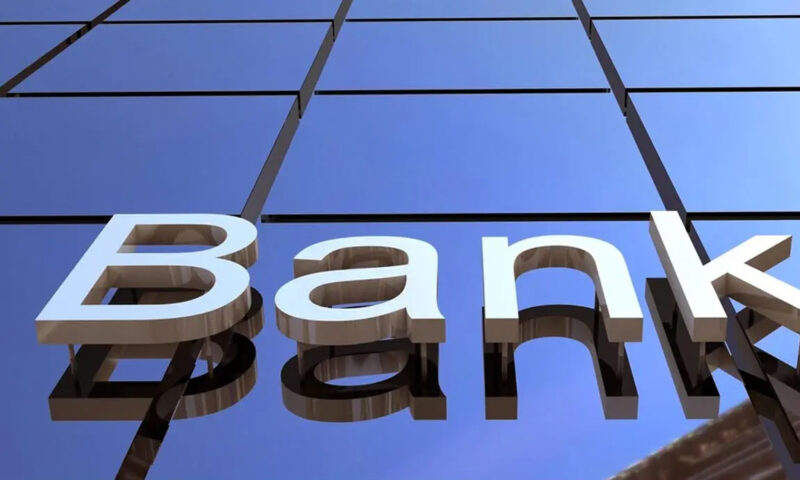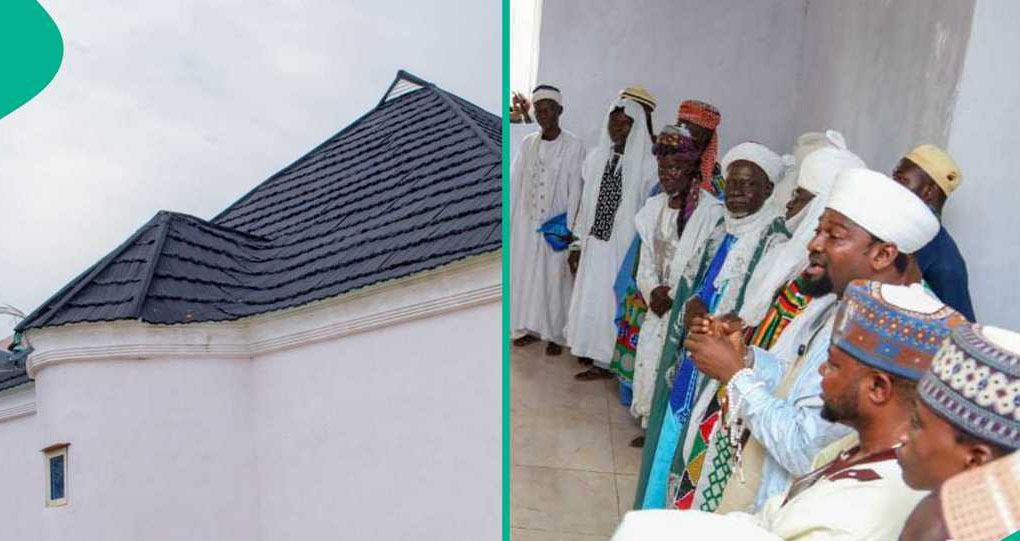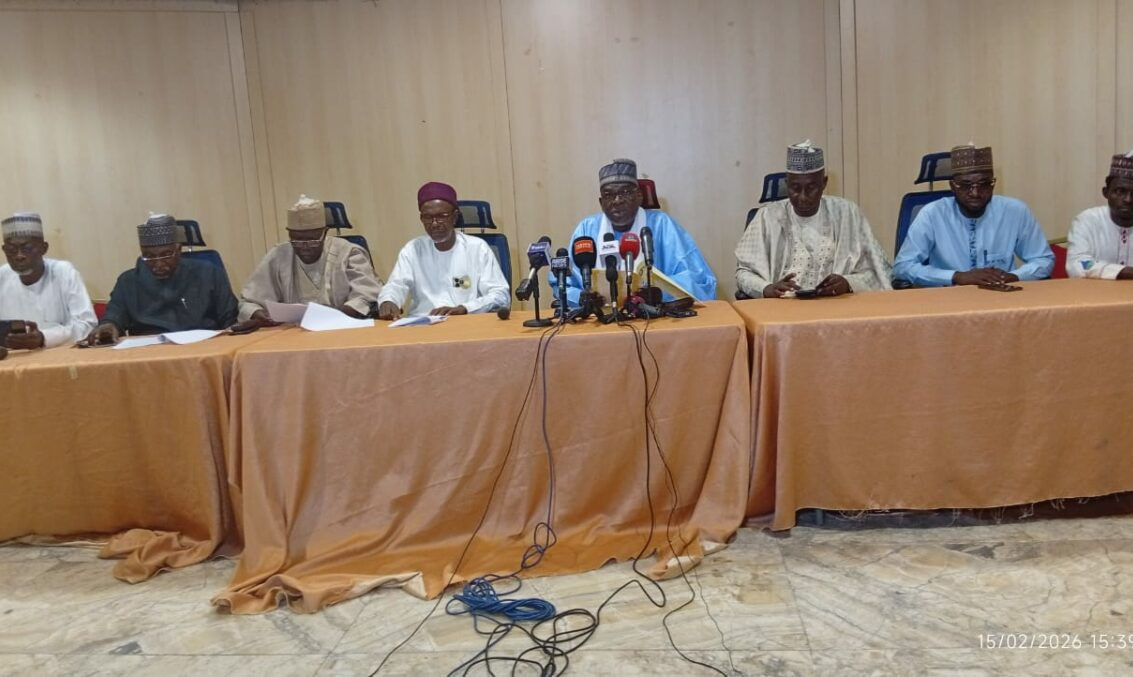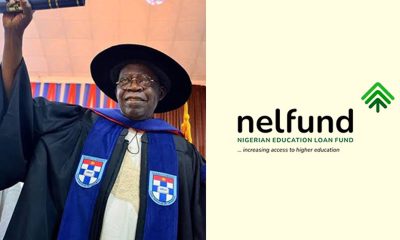metro
How MDs of Zenith, Access spent N44.67bn to secure holding interest

How MDs of Zenith, Access spent N44.67bn to secure holding interest
The managing directors of Access Holdings Plc and Zenith Bank Plc have spent N44.67 billion to acquire more shares to ensure stake in their companies.
In separate disclosures to the investing public, Herbert Wigwe, the group managing director of Access Holdings, acquired 1,350,188,284 units of shares at an aggregated sum of N32.8 per share, totalling N44.29 billion.
Wigwe had, through the additional acquisition, raised his controlling interest in the bank to 8.74 per cent or 3,105,789,014 of the company’s total shares outstanding of 35,545,225,622.
Details of the transactions showed that Wigwe, on April 27, acquired 1,135,188,284 units at N10 per share, which amounted to N11.35 billion.
On May 5, he acquired 75,000,000 units of shares at N11.25, for N843.75 million, and on May 8, 140,000,000 units at N11.55 per share for N1.617 billion.
These transactions were done through Tengen Holdings (Mauritius) Limited.
His counterpart in Zenith Bank, Ebenezer Onyeagwu, bought 8,000,000 additional shares at N47.94, for N383.52 million, which raised his stake to 0.29 per cent or 90,176,078 units of the company’s total outstanding shares of 31,396,493,786.
By this acquisition, Onyeagwu has further secured his hold as the second largest shareholder of the company.
READ ALSO:
- 25%: FCT residents ask court to stop Tinubu’s inauguration, extend Buhari’s tenure
- Buhari and I have moved to the Glass House – Aisha
- I will be Nigeria’s president now or next time, says Obi
According to the official disclosure released on Thursday, May 11, Onyeagwu on May 4 acquired an aggregated 3,463,461 units at N23.93 per share, of which the transaction details showed he bought 1,236 units at N23.85 per share; 1,161,608 units at N23.95 per share; and 2,300,617 units at N24 per share.
The Zenith Bank boss, on May 5, acquired additional shares of 4,536,539 units at N24.01 per share. The transaction was broken down into 283,794 units at N23.90 per share; 1,276,667 units at N24 per share; 2,376,078 units at N24.05 per share; and 600,000 units at N24.10 per share.
The company’s financial reports showed that as of December 31, 2022, Wigwe held 201,231,713 direct shares and 1,554,369,017 indirect shares of Access Holdings, while Onyeagwu held 82,176,078 units of Zenith Bank’s shares.
Wigwe’s indirect holdings relate to United Alliance Company of Nigeria Limited assets, 537,734,219 units of shares; Trust and Capital Limited, 584,056,979 units of shares; and Coronation Trustees Tengen Mauritius, 432,577,819 units of shares.
According to Zenith Bank, the board of directors, under the powers vested in it “by the provisions of section 426 of the Companies and Allied Matters Act (CAMA 2020) of Nigeria,” proposed a final dividend of N2.90 per share which, in addition to the N0.30 per share as interim dividend amounts to N3.20 per share from the retained earnings account as at 31 December 2022.
It means that Onyeagwu had about N288.56 million dividends from Zenith Bank by the end of last year.
The payment of dividends is subject to a withholding tax rate of 10 per cent in the hands of a qualified recipients.
Zenith Bank has a diverse shareholding structure, with no single ultimate individual shareholder holding more than 12 per cent of the bank’s total shares.
The bank’s chairman/non-executive director, Jim Ovia, holds 11.29 per cent of 3,546,199,395 direct shares and 1,523,928,375 indirect shares as of December 31, 2022.
The board of directors of Access Holdings also proposed a final dividend of N1.30k per ordinary share. It then means that Wigwe pocketed about N4.04 billion dividend from Access Holdings in 2022.H
How MDs of Zenith, Access spent N44.67bn to secure holding interest
ICIR with minimal editing
metro
Christian Cleric Builds Mosque in Honour of Tinubu’s Mother

Christian Cleric Builds Mosque in Honour of Tinubu’s Mother
In a development that has sparked widespread conversation across Nigeria’s religious and political space, Primate Elijah Ayodele has built and commissioned a new mosque in Lagos in honour of Chief Abibatu Mogaji, the late mother of President Bola Ahmed Tinubu.
The prominent cleric, who leads the INRI Evangelical Spiritual Church, unveiled the mosque during his annual thanksgiving programme held in Oke-Afa, Isolo, describing the project as a fulfillment of what he called a divine instruction.
According to Ayodele, the decision to construct the mosque was not politically motivated but rooted in spiritual obedience. He stressed that the gesture was not aimed at gaining favour from the presidency or securing political influence, but rather to promote religious harmony and unity in Nigeria. “I built the mosque because God directed me to do so,” the cleric reportedly said at the commissioning ceremony.
READ ALSO:
- Senate Explains Why Real-Time E-Transmission Cannot Be Mandatory in 2027 Elections
- Osun PDP Lawmakers Endorse Tinubu for 2027, Back Adeleke Re-Election
- MACBAN Rejects Terrorism Allegations, Warns Against Stigmatisation
Ayodele explained that the newly completed mosque would be fully handed over to Muslim leaders and the local Islamic community for administration. He stated that neither he nor his church would be involved in its management, reinforcing his claim that the project was purely an act of faith and interreligious goodwill. Originally, the mosque was said to have been planned under a different name, but Ayodele disclosed that he later renamed it in honour of Tinubu’s mother following what he described as further divine direction. Chief Abibatu Mogaji, a respected community leader during her lifetime, remains a significant figure in Lagos political history due to her influence and grassroots mobilisation efforts.
The commissioning event drew attendance from religious leaders, traditional rulers, and political representatives, reflecting the broader significance of the gesture. Observers described the commissioning as a rare example of Christian–Muslim interfaith collaboration, particularly in a country where religious identity often intersects with politics. Supporters say the act underscores the importance of peaceful coexistence and tolerance between faiths, while critics have questioned the timing and broader implications of the move within Nigeria’s political climate.
Nonetheless, Ayodele maintained that the mosque stands as a symbol of unity and obedience to divine guidance, rather than a calculated political gesture. The development has since generated conversations online, with many Nigerians debating its spiritual, social and political dimensions.
Christian Cleric Builds Mosque in Honour of Tinubu’s Mother
metro
Bandits Abduct Wives, Daughters of JIBWIS Chief Imam, Others in Bauchi

Bandits Abduct Wives, Daughters of JIBWIS Chief Imam, Others in Bauchi
Suspected bandits have abducted the wives and daughters of the Chief Imam of Jama’atu Izalatil Bid’ah Wa Ikamatis Sunnah (JIBWIS) in Digare, Abubakar Muhammad Digare, during a late-night attack in Bauchi State, escalating concerns over rising insecurity in Northern Nigeria.
The attack reportedly occurred on Saturday night in Digare town, Alkaleri Local Government Area, where gunmen stormed the cleric’s residence and forcibly whisked away several women, including his wives and daughters, alongside other residents.
Eyewitnesses said the assailants invaded the community under the cover of darkness, firing sporadically to scare residents before targeting the imam’s home. Villagers fled into nearby bushes while others locked themselves indoors as the attackers operated unchallenged for several minutes. The abducted victims were taken to an undisclosed location, and as of the time of filing this report, the exact number of those kidnapped has not been officially confirmed.
READ ALSO:
- Senate Explains Why Real-Time E-Transmission Cannot Be Mandatory in 2027 Elections
- Osun PDP Lawmakers Endorse Tinubu for 2027, Back Adeleke Re-Election
- MACBAN Rejects Terrorism Allegations, Warns Against Stigmatisation
Residents described the incident as one of the most brazen attacks in recent months, noting that targeting the family of a respected religious leader such as Abubakar Muhammad Digare has deepened fear within the community. Local sources said the attack has triggered panic across surrounding villages in Alkaleri LGA, with many residents calling for increased security presence to prevent further raids.
The Bauchi State Police Command has yet to release a detailed statement on the incident. However, community leaders are urging security agencies to intensify search-and-rescue efforts and strengthen patrol operations in vulnerable rural communities. Security analysts warn that repeated bandit attacks in Bauchi and neighbouring states highlight persistent gaps in intelligence gathering and rapid response coordination, stressing that kidnapping for ransom remains a major driver of armed violence in parts of northern Nigeria.
The latest abduction adds to a growing list of kidnapping incidents in Northern Nigeria, where armed groups frequently target rural settlements, religious leaders, women and children. Observers say the targeting of high-profile community figures could further destabilise affected areas if urgent measures are not implemented to restore confidence and deter future attacks. Authorities are expected to provide further updates as investigations continue.
Bandits Abduct Wives, Daughters of JIBWIS Chief Imam, Others in Bauchi
metro
MACBAN Rejects Terrorism Allegations, Warns Against Stigmatisation

MACBAN Rejects Terrorism Allegations, Warns Against Stigmatisation
The Miyetti Allah Cattle Breeders Association of Nigeria (MACBAN) has firmly rejected allegations linking the association to terrorism, banditry, and mass violence, describing such claims as unfounded, misleading, and damaging to its reputation and the livelihoods of millions of pastoralists across Nigeria.
The National President of MACBAN, Baba Othman Ngelzarma, stated this on Sunday while addressing journalists in reaction to ongoing discussions surrounding a proposed United States legislation, H.R. 7457, currently before the United States Congress.
Ngelzarma said while MACBAN respects the sovereign right of the United States to debate issues relating to religious freedom and human rights, the association is deeply concerned about narratives that allegedly portray it as a violent or extremist organisation. He warned that such portrayals risk misinforming international policymakers and undermining peace-building efforts within Nigeria.
He stressed that MACBAN is a legally registered association, established in 1986 under Nigerian law, and has operated openly for decades with elected leadership structures at national, state, and local levels. According to him, the association is formally recognised by federal and state governments as a critical stakeholder in livestock development, pastoral welfare, and farmer–herder conflict mediation.
READ ALSO:
- Customs Seize Cocaine Worth N1bn Along Nigeria–Benin Corridor
- Security Row: El-Rufai Accuses Ribadu of Procuring Dangerous Chemicals
- Singer Market Fire: Tinubu Sends Shettima, FG Delegation to Kano
The association cautioned that any attempt to blacklist, stigmatise, or criminalise legitimate organisations could lead to serious consequences, including economic losses, disruption of livestock trade, and further marginalisation of pastoral communities, which play a vital role in Nigeria’s food security and rural economy.
Reiterating its mandate, MACBAN said its activities are focused on improving pastoral welfare, promoting modern and sustainable livestock practices, fostering peaceful coexistence with host communities, and supporting security agencies through dialogue and early-warning mechanisms aimed at preventing conflict.
Ngelzarma emphasised that MACBAN has never supported banditry, terrorism, kidnapping, or cattle rustling, noting that no court in Nigeria or abroad has ever indicted the association for involvement in terrorist activities. He argued that it is unjust and legally flawed to attribute the criminal actions of individuals to a registered national organisation.
The association also highlighted that pastoralists themselves have been major victims of insecurity, citing repeated attacks by armed groups and bandits that have resulted in displacement, cattle rustling, and loss of lives. It disclosed that at least eight MACBAN state leaders were killed in 2025 by criminal elements in different parts of the country.
According to MACBAN, the association has consistently collaborated with security agencies through intelligence sharing, community mediation, and participation in technical committees on grazing reforms, ranching initiatives, and livestock identification systems, including efforts to curb cattle rustling and illegal arms movement.
The group called on the Senate Committees on Foreign Affairs and National Security to adopt a formal resolution clarifying Nigeria’s legislative position on what it described as misleading international narratives. It also urged the National Assembly to engage U.S. lawmakers through parliamentary diplomacy to ensure accurate representation of Nigeria’s internal dynamics.
MACBAN further appealed to the Federal Ministry of Foreign Affairs and the Office of the National Security Adviser to initiate diplomatic engagement with American authorities, with a view to presenting documented evidence of its lawful status and compliance with Nigerian laws.
While cautioning against generalised profiling of communities, the association urged both local and international media to avoid sensational reporting that could inflame tensions and deepen mistrust between communities.
Reaffirming its commitment to national unity, peace, and lawful engagement, MACBAN maintained that accountability must remain evidence-based, warning that international actions founded on misinformation could undermine legitimate Nigerian institutions and complicate efforts to address insecurity.
MACBAN Rejects Terrorism Allegations, Warns Against Stigmatisation
-

 Education15 hours ago
Education15 hours agoCheck Your Name: UNILORIN Releases Updated NELFUND Refund List for 2024/2025 Students
-

 News7 hours ago
News7 hours agoOsogbo Sons and Daughters Mark 5th Anniversary with Awards, Political Undertones
-

 metro3 days ago
metro3 days agoLagos Police Launch Manhunt for Suspect in Brutal Ajah Murder
-

 News3 days ago
News3 days agoAso Rock Goes Solar as Tinubu Orders National Grid Disconnection
-

 metro1 day ago
metro1 day agoBoko Haram Terrorists Release Video of 176 Abducted Kwara Residents
-

 metro1 day ago
metro1 day agoWoman Arrested Over Murder of Nigerian E-Hailing Driver in South Africa
-

 Sports3 days ago
Sports3 days agoLookman Shines as Atlético Madrid Hammer Barcelona 4-0
-

 News17 hours ago
News17 hours agoAfenifere Calls for Immediate Take-Off of State Police as Terror Threats Rise in Yorubaland















